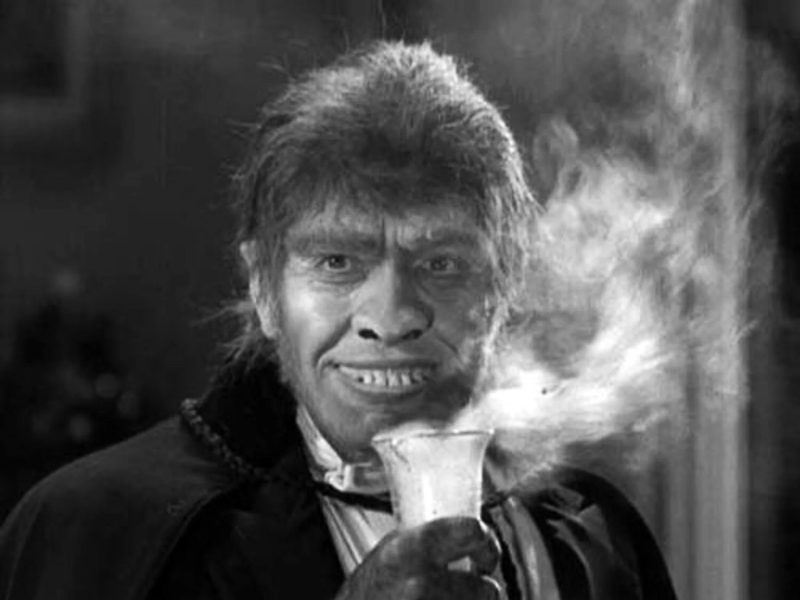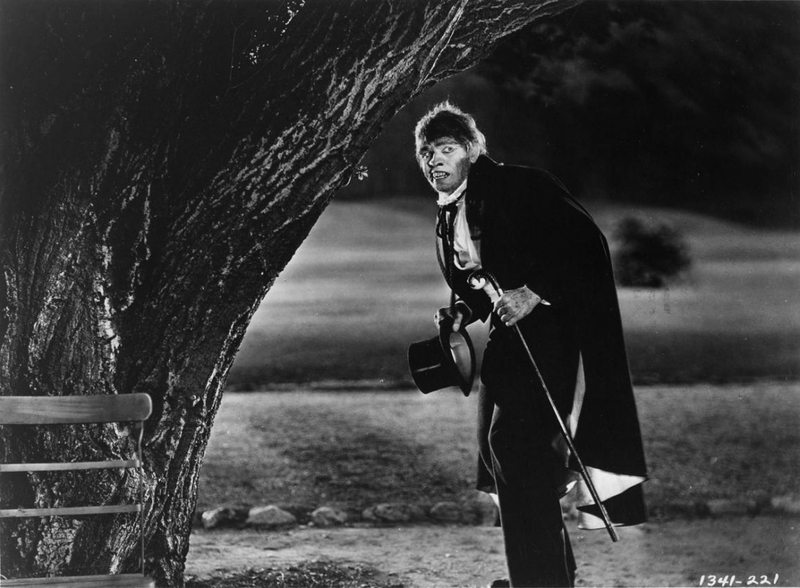The 94th Academy Awards aired this Sunday, but that didn't mean a whole lot to us horror fans. In nearly 100 years, the entire genre has garnered fewer nominations than Jack Nicholson alone (and no, he was not nominated for The Shining). Seven horror/monster movies have been nominated for Best Picture, with two taking home the Oscar — The Silence of the Lambs and The Shape of Water. While I certainly won't argue against their acclaim, both films have enough disparate elements that other genres can claim them as well. "Silence of the Lambs isn't a horror film, it's a thriller!" "The Shape of Water may star a fish monster, but it's less a monster movie than it is a love story!" You've certainly heard these arguments before. I don't necessarily disagree with them, but there is always an attempt by critics and some film aficionados to undermine the horror aspect of a genre picture when it receives mainstream acclaim.

Few scary movies are nominated for the more prestigious awards, and the few that are nominated are from films the Academy will refuse to call "horror." If The Joker can win two acting Oscars, why can't Dracula? Well, believe it or not, the Academy did actually honor a movie monster once. In 1932 (when monster movies were on the rise), actor Fredric March won Best Actor for his duel performance of Dr. Jekyll and Mr. Hyde. And I'm not talking about some stripped-down, fangless version, either! This Mr. Hyde was a fright to behold: wild hair, ape-like teeth, and an appearance that became progressively worse every time he transformed (thanks to incredible makeup by Wally Westmore). Hyde's behavior is just as horrid. He may not have a particularly high body count, but the way he torments bar singer Ivy Pierson (Miriam Hopkins, who should've been nominated alongside March) is as disturbing as any horror being produced today. And "horror" happens to be the right word to describe the film. It is no mere thriller.

Robert Louis Stevenson's 1886 novella, Strange Case of Dr Jekyll and Mr Hyde, is among the most famous stories ever told. It is so well-known that its primary twist is not just common knowledge but popular shorthand for someone who lives a dual life. Yes, we all know that the benevolent Dr. Jekyll is the evil Mr. Hyde, so the revelation isn't enough to shock an audience. When the story is adapted, it's not a mystery but a showcase for a revered actor. Richard Mansfield was the first actor to play Jekyll/Hyde, scaring the living daylights out of folks in the 1887 stage adaptation.
Mansfield was so convincing in the dual role, a nervous theatre-goer wrote the police and accused Mansfield of being the real-life Jack the Ripper. Why? Because Mansfield was so good at playing a killer that he had to be one offstage! John Barrymore, the actor whose portrayal of Hamlet earned him the title of the "greatest living American tragedian," thrilled audiences in the 1920 silent film version. Because of his success in that version, Barrymore was offered the part in the 1931 version, which brings us back to March. The tradition of respected thespians continued after March, but his Oscar win was probably the most significant event to come out of it.

For some odd reason, the 1931 Dr. Jekyll and Mr. Hyde isn't as popular today as other 1930s favorites like Dracula and Frankenstein. Perhaps it has to do with the fact that Paramount made it, so it's not associated with the Universal Monsters line that helped keep so many of those classic creeps alive in modern pop culture. It could be that the film contains more overtly sexual content than its Universal counterparts, making it unsuitable for younger kids. I imagine that the film being "lost" until the 1960s didn't help the cause. Whatever the reason may be, it definitely isn't a lack of quality.
Director Rouben Mamoulian's direction utilizes the medium to its fullest, demonstrating the visual capabilities of cinema in a striking manner. Like Citizen Kane (which came after), Dr. Jekyll and Mr. Hyde is like an entire film course contained in a single movie. Karl Struss was nominated for a cinematography Oscar, Percy Heath and Samuel Hoffenstein for writing. By any conventional standard, this is an excellent picture. Remember how I said this film was lost? Well, MGM thought the film was good... too good. They bought the film and all its rights for their 1941 Spencer Tracy-led remake, and they attempted to bury this version to avoid any comparisons. Fortunately, this Hyde didn't remain hidden.

To me, Fredric March is Jekyll and Hyde. His Jekyll is kind but overly exuberant in his research. He is civil and respected, though his passion for radical theory does make him a somewhat controversial figure. In one of the great character introductions, the camera forces us to see the world through Jekyll's eyes (the subjective camera would later become a common technique in slasher films). We play the organ with him, we talk to his butler, and then we see Jekyll in the mirror. Jekyll's view is our own until it is time for him to deliver a lecture at St Simon's College. March delivers Jekyll's lecture as if he were a preacher on Sunday morning. The lecture itself sounds like a sermon, positing the good and evil within every man's soul. He claims he can separate these two halves using chemicals, a claim that is met with shock and ridicule by his peers.
March's passionate delivery and gentlemanly demeanor endear us to him. We are hurt on his behalf when his theories are dismissed (especially since anyone with a passing familiarity with the story knows he is correct). Afterward, we see Jekyll at a fancy party with his fiancee, Muriel Carew (Rose Hobart). Here we see March play the dashing leading man, charming like a storybook prince. At this point, March has much in common with David Manners, the young hero in many Universal horror films. However, he will soon graduate from Manners to Bela Lugosi.

Hyde is unleashed upon the world after two ingenious transformation sequences (one involving a technique in which makeup was made invisible or visible through a series of colored filters). March's Jekyll is great, but his Hyde is melodramatic perfection. Hyde's simian appearance is complemented by March's unhinged performance. At first, March plays him like a naughty yet curious schoolboy. He is no doubt a bully, but he has this joyful lust for life that is almost irresistible. He is free for the first time, and he plans to take advantage of this. When he tries to catch rain in his mouth, it's kinda cute. Once he starts abusing poor Ivy Pierson, both Hyde and his actor become unbearably nasty.
March often comes close to camp without crossing the line. Hyde is always effectively chilling when he needs to be, which is remarkable given the fact that March looks like the Son of Kong. Really, all of this could have been silly, but March's stellar performance keeps us firmly within the realm of horror. Lugosi's Dracula was smoothly sinister, Karloff's Frankenstein was heartbreaking, but March's Hyde is utterly loathsome. Our sympathies remain with Jekyll as he tries to break free from Hyde. March becomes so pathetic that you almost want him to get his happily ever after. But as the infernal images of fire used at the end suggest, there will be no salvation for Jekyll or Hyde.

Hyde's power could not be denied by the Academy. For being a perfect grotesquery, Fredric March won his Oscar... though the Academy's bias against horror still dampened the win. It was the only time a movie monster won Best Actor. It was also the only time that Best Actor resulted in a tie. Wallace Beery, nominated for The Champ, was only behind March by one vote. According to the rules at the time, that meant that he was the co-winner. Perhaps that had nothing to do with Dr. Jekyll and Mr. Hyde's macabre nature, but it seems suspect that the only tie of this nature happened to a monster movie.
Still, it is nice that the Academy honored a full-blooded horror creature at least once. Maybe one day, that will become the norm. After all, there has been brilliance in the genre before and since Dr. Jekyll and Mr. Hyde. Horror can be fun (and that's what I prefer), but it can also explore dark truths about ourselves in a way that no other genre can. March's Hyde portrayed our baser selves with panache and artistry. If the Academy can see that in Hyde, let's hope they see the beauty in another beast.






